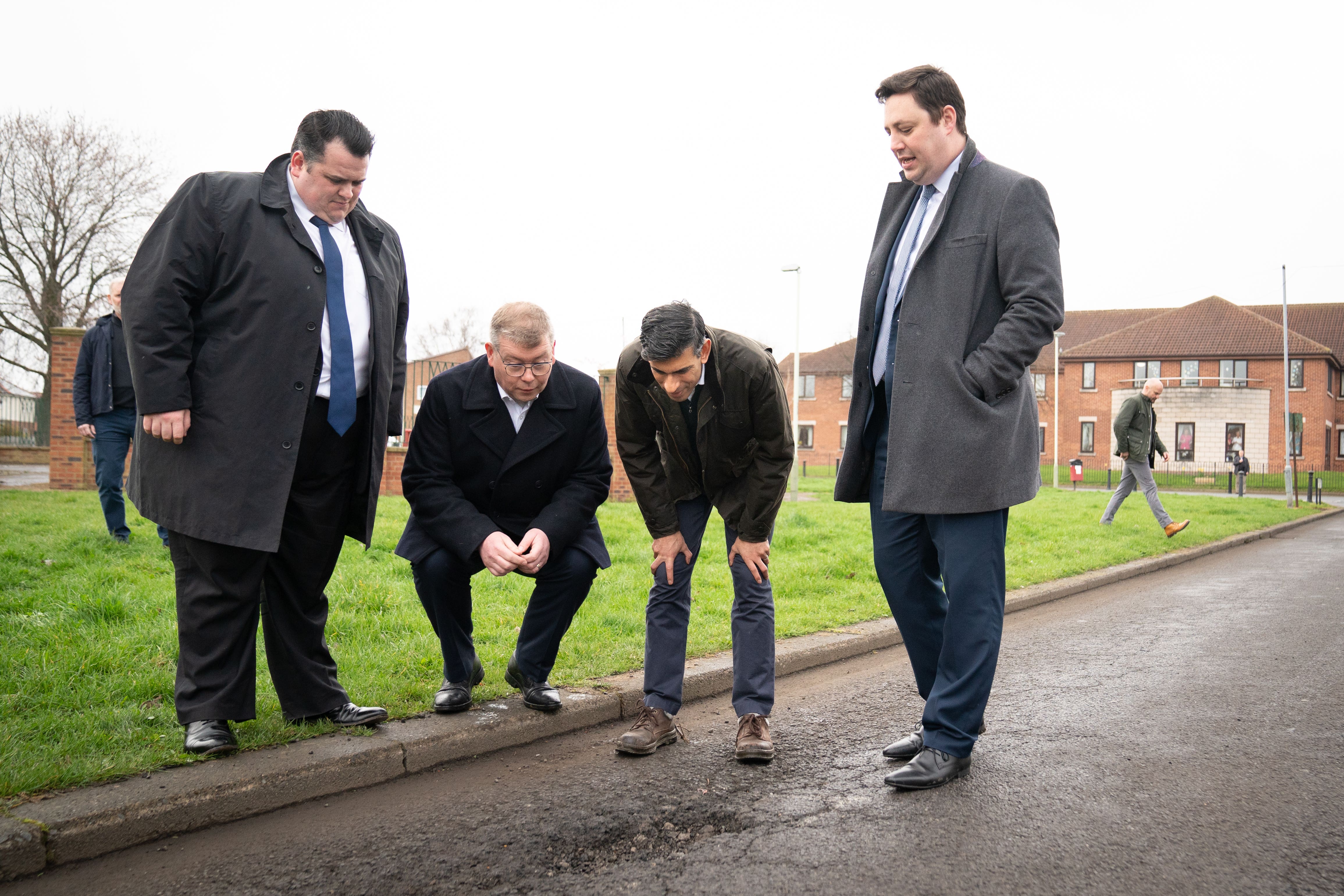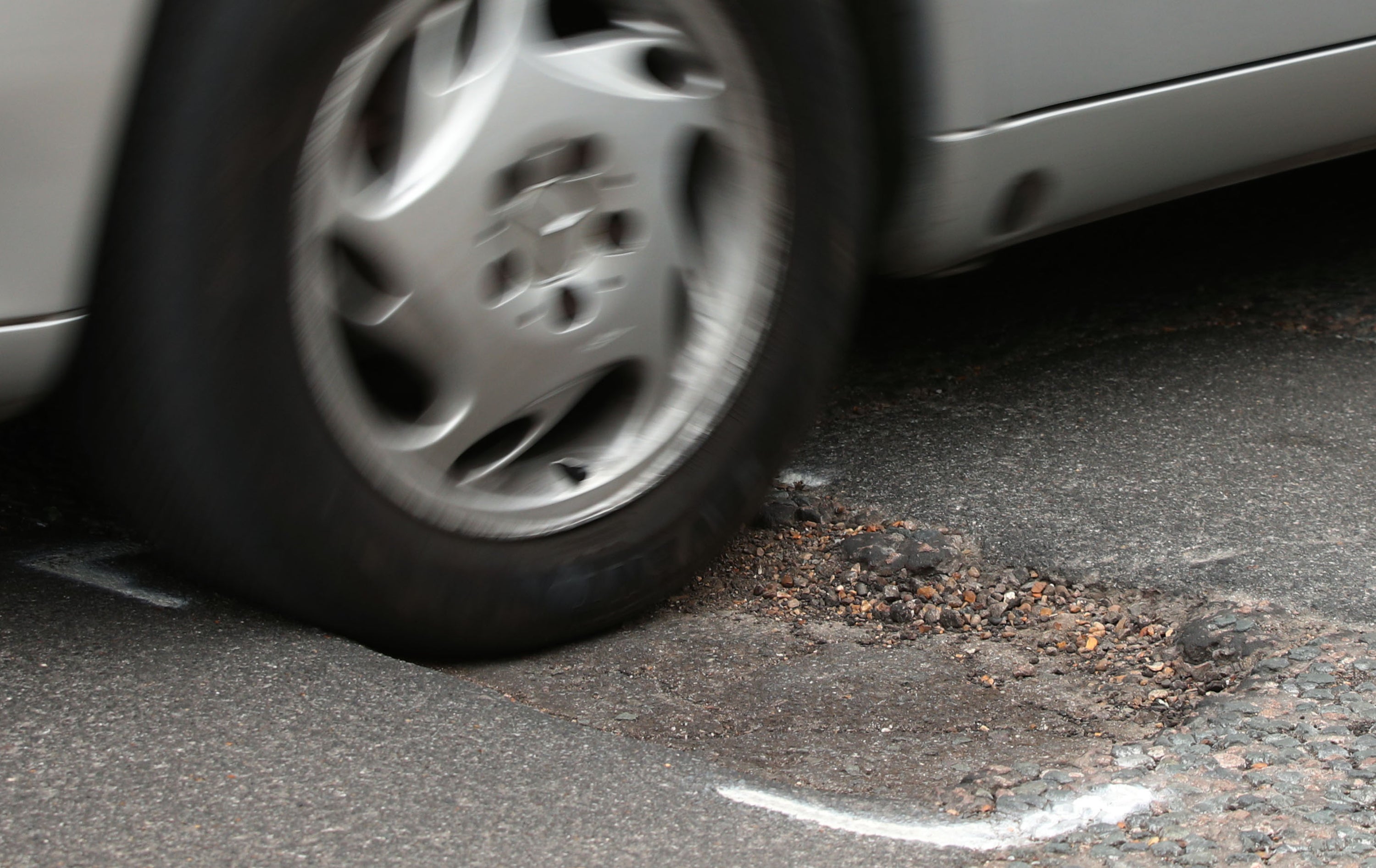Millions of potholes need fixing across England and Wales as staggering cost revealed
Local authorities expect to fix 2 million potholes in the current financial year

Your support helps us to tell the story
From reproductive rights to climate change to Big Tech, The Independent is on the ground when the story is developing. Whether it's investigating the financials of Elon Musk's pro-Trump PAC or producing our latest documentary, 'The A Word', which shines a light on the American women fighting for reproductive rights, we know how important it is to parse out the facts from the messaging.
At such a critical moment in US history, we need reporters on the ground. Your donation allows us to keep sending journalists to speak to both sides of the story.
The Independent is trusted by Americans across the entire political spectrum. And unlike many other quality news outlets, we choose not to lock Americans out of our reporting and analysis with paywalls. We believe quality journalism should be available to everyone, paid for by those who can afford it.
Your support makes all the difference.The rate of pothole repairs in England and Wales has reached an eight-year high, according to a new report, with a staggering £16.3 billion needed to fix the country’s roads.
This shows highways are heading towards “breaking point”, according to the Asphalt Industry Alliance (AIA), which carried out the research.
The annual Alarm survey found that local authorities expect to fix 2 million potholes in the current financial year.
That is up 43% compared with 1.4 million during the previous 12 months, and is the highest annual total since 2015/16 when 2.2 million potholes were filled in.
The AIA report said: “This indicates that local authorities, who have a statutory responsibility to keep local roads safe, don’t have the funds to do so in a cost-effective, proactive way, which would allow them to carry out the appropriate maintenance interventions at the right time.”
Just 47% of local road miles were rated as being in a good condition, with 36% adequate and 17% poor.
The survey found that average highway maintenance budgets increased by 2.3% in the 2023/24 financial year compared with the previous 12 months.
But the impact of rising costs due to inflation meant local authorities “effectively experienced a real-terms cut”, the report warned.
AIA chairman Rick Green said: “Local authorities have a bit more money to spend this year but the impact of rising costs due to inflation means they have actually been able to do less with it.
“Couple this with the effects of the extreme weather we are increasingly facing, and the result is that the rate at which local roads are suffering is accelerating towards breaking point.”

The survey found that an estimated 2.0 million potholes will be filled by councils in the 2023/24 financial year, up from 1.4 million during the previous 12 months.
This is the most since 2015/16.
In October 2023, the Government announced it would provide £8.3 billion of extra funding over 11 years to fix potholes in England.
This was part of the Network North strategy to use money saved by scrapping the planned extension of HS2 north of Birmingham.
Mr Green said: “There’s still a mountain to climb when it comes to fixing our local roads.
“While it’s great that English local authorities should be getting more money from the Government through its Network North funding, it’s clearly not going to be enough to halt the decline.”
Local Government Association transport spokesman Darren Rodwell said: “This report reveals in stark terms the huge challenge facing councils in maintaining the local roads network, which nearly everyone relies on.
“The backlog of repairs now stands at almost double the extra amount that Government has promised over the next 11 years.”
AA president Edmund King said: “Our breakdown data shows that 2023 was the worst year for potholes for five years.
“Arguably the road network is a local council’s biggest asset, but not enough planned investment and repairs are being made to make streets safer and smoother for drivers and those on two wheels.”
Nicholas Lyes, director of policy and standards at charity IAM RoadSmart, said: “The AIA’s report lays bare the crumbling state of our road network as well as the effort and money now required to fix it.
“Notwithstanding the financial headache pothole-related damage does to the vehicle’s owner, our crater-laden roads are posing a serious road safety hazard.”
A Department for Transport spokesperson said: “We’re taking decisive action to resurface roads and fix potholes by investing an extra £8.3 billion of reallocated HS2 funding, the biggest ever funding increase for local road improvements and enough to resurface over 5,000 miles of roads across the country.
“In addition, we have made £150 million available for local authorities right now meaning funding for most authorities has increased by almost a third compared to last year, with a further £150 million to follow in the coming financial year.”